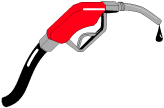Lead polluters jailed
 11 August 2014. Last week, three executives from Innospec, the world’s only remaining producer of lead additives to gasoline, were sentenced to jail. They will each spend between 18 months and four years behind bars. The company, previously known as Associated Octel Ltd., itself pleaded guilty in 2010 to bribing state officials in Iraq and Indonesia and was fined $12.7 million (see “Only one chance”, chapter 9).
11 August 2014. Last week, three executives from Innospec, the world’s only remaining producer of lead additives to gasoline, were sentenced to jail. They will each spend between 18 months and four years behind bars. The company, previously known as Associated Octel Ltd., itself pleaded guilty in 2010 to bribing state officials in Iraq and Indonesia and was fined $12.7 million (see “Only one chance”, chapter 9).
The bribes were intended to secure, or serve as rewards for having secured, contracts for the supply of tetraethyl lead (TEL) as an octane booster for gasoline. Lead pollution from car exhausts has exposed a whole generation of developing brains to one of the most toxic brain drainers. The phase-out of lead-containing gasoline additives in the US began in 1973 following the enactment of the Clean Air Act of 1970, and TEL has since been banned in most of the world.
The case emerged in connection with the United Nations investigations of fraud within the Oil for Food Program in Iraq, where evidence showed that Innospec had violated the UN sanctions against Iraq and committed corruption offences. The company admitted to having bribed officials to delay for several years a planned ban of leaded gasoline, both in Iraq and in Indonesia. The revenues from exporting lead additives to these developing countries were about $1.8 billion, with profits totaling more than one-third of that. In comparison to such profits, the fine imposed by the courts seems trivial (additional fines in the US are pending).
In addition to the three jail sentences, one more Innospec executive, who pleaded guilty, was sentenced to a 16 month suspended sentence with 300 hours of community service. In the US, an Innospec agent had previously pleaded guilty in conspiring to commit wire fraud and other charges; he was sentenced to 30 months in prison in 2011 in a case brought by the US Securities and Exchange Commission. In the words of UK Judge Goymer, “none of these defendants would consider themselves in the same category as common criminals who commit crimes of dishonesty or violence… but the real harm lies in the effect on public life, the effect on community and in particular with this corruption, its effect on the environment.”
Upon the court decision, Brian Watts, vice president of Innospec, said that his company continues to sell TEL for automobile gasoline in just one country, Algeria, which plans to phase out its use in 2015. According to the most recent data available (2011) from the United Nations Environment Program, cars and trucks in Iraq, Afghanistan, Algeria, Myanmar, North Korea and Yemen could still legally burn gasoline with TEL added to prevent engine knock. However, Innospec claims that it is the only remaining manufacturer of TEL in the world, although the Huffington Post refers to unconfirmed rumors about potential producers in China and elsewhere.
TEL is not the only source of lead exposure, and other products continue to expose developing brains to the toxic hazard. Perry Gottesfeld, executive director of the nonprofit Occupational Knowledge International, has uncovered high lead concentrations in paints sold in developing nations. He found at least one overseas lead-based paint manufacturer that was owned by a US company. To the Huffington Post, Gottesfeld said: “If you look at the historical behavior of the [leaded fuel] industry and the lead paint industry, you see some similarities. The history here is long and poor in terms of how they propped up the use of lead.”
